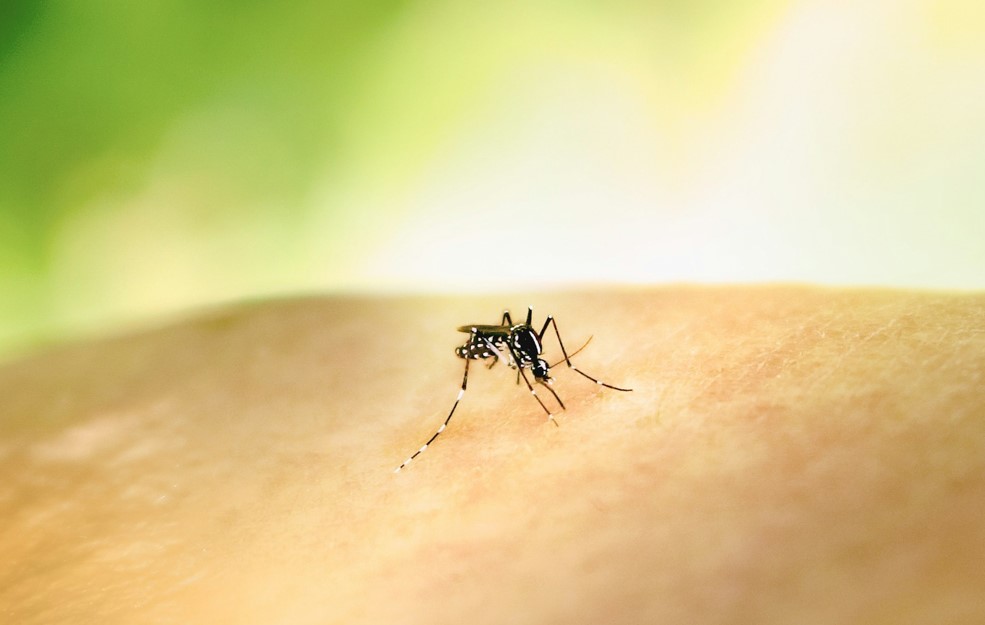While there are a number of health concerns while traveling in Zambia, malaria belongs near the top of the list.
The country has one of the highest transmission rates in the world – making it crucial for travelers to understand the risks and take proactive measures to protect themselves.
In this article, we’ll cover the essentials on how to prevent malaria during your stay in Zambia, from high-risk regions to preventive strategies.
Regions in Zambia with the Highest Risk
Zambia is one of the few countries with high transmission rates across all areas.
That being said, mosquito density and overall risk can vary across Zambia – with higher rates in certain regions. Areas with a tropical or semi-tropical climate, such as the Luangwa Valley and Lower Zambezi, tend to have the highest mosquito activity.
- Eastern and Northern Regions: Areas like the Luangwa Valley and Lower Zambezi are extremely prone to malaria transmission. The climate here favors mosquitoes, making it essential to be well-prepared.
- Rural and Forested Areas: Rural areas with standing water and dense vegetation have a very high risk of malaria. Travelers venturing into rural Zambia should prioritize preventive measures.
- Urban Areas: While cities like Lusaka tend to be slightly safer, there are still many cases of malaria. Even if you’re staying in urban centers, remaining cautious is still wise.
Does Malaria Risk Change Throughout the Year?
Zambia’s transmission rates are very high all year round, but especially during the rainy season (typically from November to April). This period creates more opportunities for mosquito breeding, as stagnant water accumulates, providing ideal mosquito habitats.
- Rainy Season: Mosquito populations peak during the rainy season, increasing the malaria risk for travelers.
- Dry Season: From May to October, the risk decreases but does not disappear. Travelers should remain vigilant regardless of the season.
Key Malaria Prevention Strategies
To protect yourself from malaria in Zambia, it’s essential to focus on preventing mosquito bites and taking antimalarial medication. Here’s what you need to know.
Most Effective: Taking Antimalarial Medication
If you’re traveling to high-risk areas in Zambia, antimalarial medication is highly recommended (all year round, in every region).
Connect with a doctor regarding your travel plans and follow their advice on medications, as each option has its own dosing requirements and side effects.
Start Consultation for Malaria Tablets ➜
Doctors typically recommend Malarone – known for its high effectiveness and relatively low side effects (compared to other antimalarials). It’s typically taken daily, starting a couple of days before entering a malaria zone and continuing for a week after leaving.
Getting a Prescription for Antimalarials:
At Runway Health, you can connect with a travel doctor through our online platform. This offers a convenient way to discuss your needs and have medication delivered to you in advance, if prescribed.
Preventing Mosquito Bites
Alongside medication, reducing mosquito exposure is critical in preventing malaria.
- Use Insect Repellent: Apply a repellent containing DEET, picaridin, or oil of lemon eucalyptus on exposed skin – especially during peak mosquito activity hours (sunrise and sunset).
- Wear Protective Clothing: Long sleeves, pants, and socks reduce exposed skin, minimizing the risk of bites. Choose light-colored clothing, as mosquitoes are more attracted to darker shades.
- Sleep Under a Mosquito Net: If you’re staying in rural areas or places without screened windows, sleeping under an insecticide-treated net is highly recommended. Make sure the net has no holes and is tucked in securely.
- Stay in Air-Conditioned Rooms: If available, choose accommodations with air conditioning, as it helps deter mosquitoes.
Environmental Factors That Increase Malaria Risk
Understanding Zambia’s environment can help you avoid high-risk mosquito areas.
Forested and Rural Areas
Mosquitoes thrive in warm, humid environments with plenty of standing water. Forested and rural regions in Zambia, especially near rivers and lakes, have higher mosquito populations.
Time of Day
Mosquitoes that transmit malaria are most active during dawn and dusk. Be especially cautious during these times by applying repellent, wearing long sleeves, and limiting outdoor exposure when possible.
Urban Areas vs. Rural Areas
While cities like Lusaka may present a lower risk, rural regions with dense vegetation and limited access to healthcare have higher malaria rates. Travelers should be prepared with appropriate clothing, repellents, and, if recommended, antimalarial tablets when venturing into these regions.
Recognizing Malaria Symptoms
Being aware of malaria symptoms can help you seek medical attention promptly if necessary. Symptoms often appear a week or more after being bitten by an infected mosquito and can resemble those of the flu.
Common Malaria Symptoms
- High fever
- Chills and sweating
- Headaches
- Muscle and joint pain
- Nausea and vomiting
When to Seek Medical Help
If you develop any of these symptoms during or after your trip to Zambia, seek medical attention immediately. Early diagnosis and treatment are essential for managing malaria effectively. If you’re in a remote area, contact the nearest healthcare facility or consider heading back to a larger city with adequate medical facilities.
Zambia’s Healthcare System and Malaria Treatment
Zambia has healthcare facilities equipped to handle malaria cases, particularly in urban centers.
Rapid diagnostic tests and treatments are typically available, but remote areas may have limited access. Travelers venturing into rural regions should be aware of the location of nearby healthcare facilities.
Urban vs. Rural Healthcare
In cities like Lusaka, healthcare facilities can diagnose and treat malaria effectively. However, if you’re in remote or rural regions, it may be challenging to access healthcare quickly, so it’s essential to take preventive steps seriously.
Practical Travel Tips to Avoid Malaria
Aside from taking antimalarials and using repellent, a few additional tips can further reduce your malaria risk.
- Be Mindful of Accommodation Choices: Opt for accommodations with screened windows, air conditioning, or insecticide-treated nets in high-risk areas.
- Pack Extra Repellent and Medication: Plan for more than you think you’ll need, as repellent and medication may not be readily available in rural areas.
- Stay Hydrated and Rested: Keeping yourself healthy with adequate hydration and rest can support your immune system. Avoid dehydration, especially if you’re spending time outdoors.
FAQs You Might Have:
Do I need malaria tablets for all parts of Zambia?
Yes – the CDC, health experts and travel doctors highly recommend antimalarials for any and all parts of Zambia (even if you plan to stay indoors during most of your trip). This standard applies to all African countries with very high-density mosquito populations – correlated with higher malaria transmission rates (Source).
Can I obtain malaria tablets in Zambia?
It’s recommended to bring malaria tablets with you, as they may not be readily available, especially in rural areas. Obtaining a prescription and filling it before your trip ensures you’re prepared without relying on local supplies.
What if I forget to take my antimalarial medication?
If you miss a dose, take it as soon as you remember, but never double-dose. Consistent use is critical for effective prevention, so set reminders if needed to avoid missing doses.
Are insect repellents safe to use every day?
Yes, repellents containing DEET, picaridin, or oil of lemon eucalyptus are safe for daily use when applied as directed (by following the manufacturer’s instructions).
Can children and pregnant women take malaria medication?
Some antimalarial medications are safe for children and pregnant women, but it’s essential to consult a physician. They can recommend the best option based on age, health, and travel plans.
The Main Takeaway
With its breathtaking landscapes and diverse wildlife, Zambia is a remarkable destination, but it’s also an area with a high risk of malaria.
By taking preventive steps—like using insect repellent, sleeping under mosquito nets, and following a prescribed antimalarial regimen—you can significantly lower your risk of contracting malaria. Consulting a travel doctor before your trip ensures you’re well-prepared, allowing you to focus on enjoying the beauty of Zambia without the worry of malaria.

